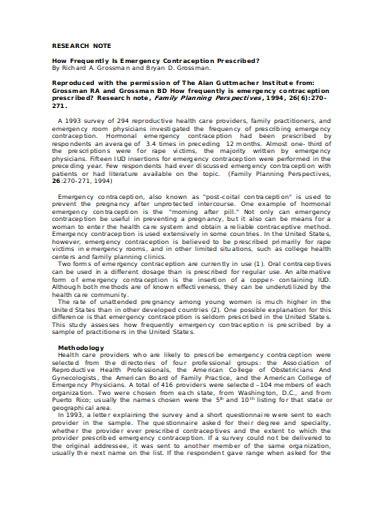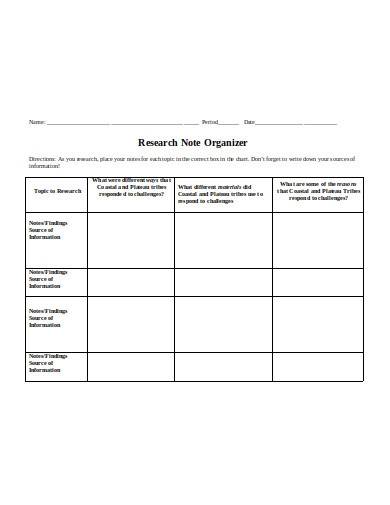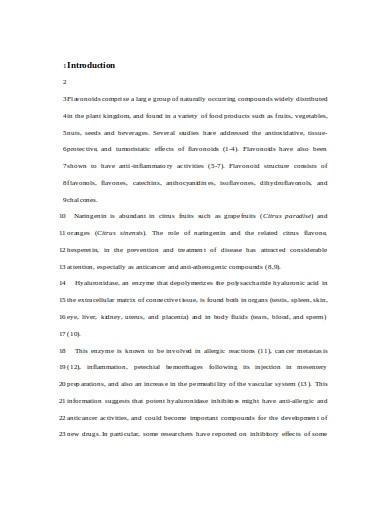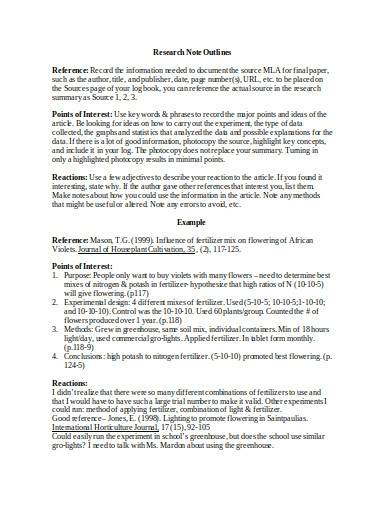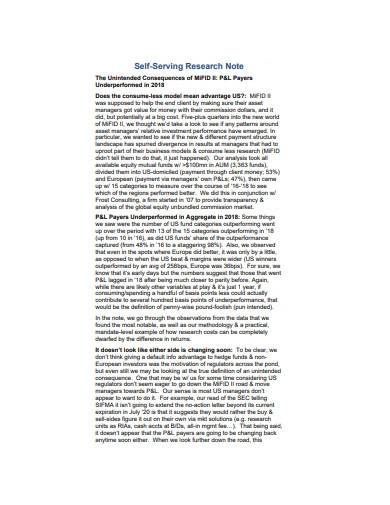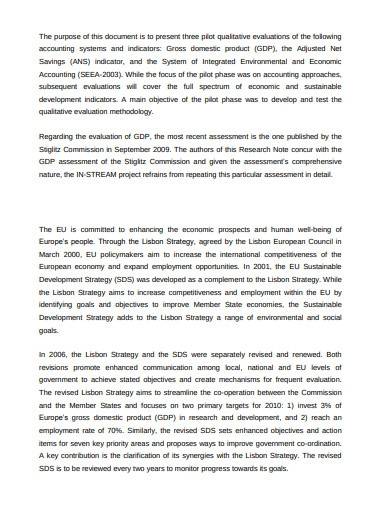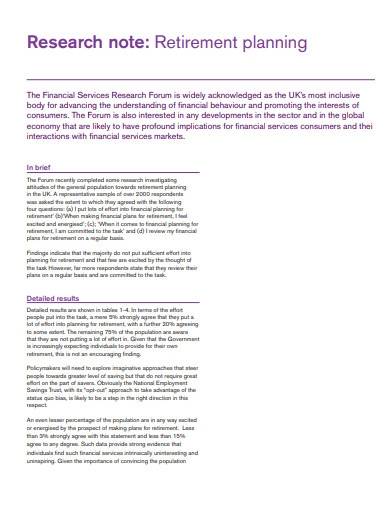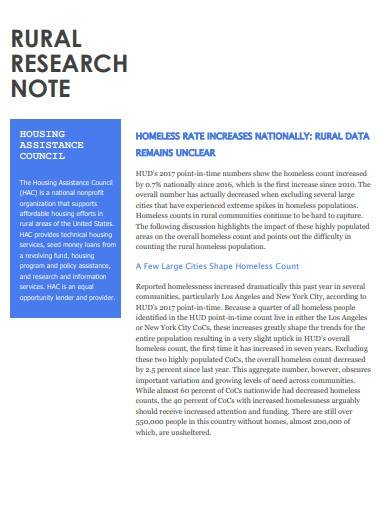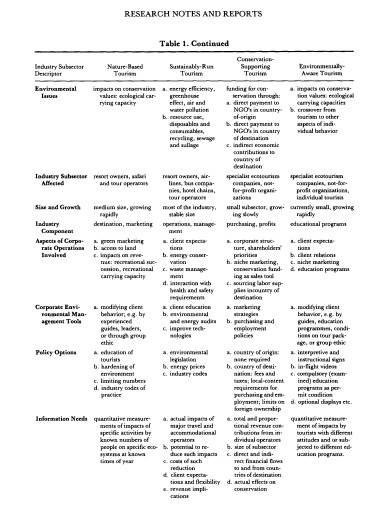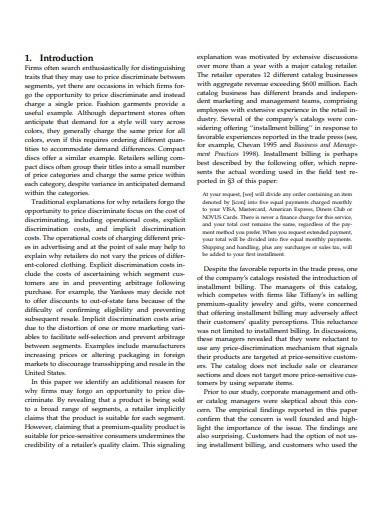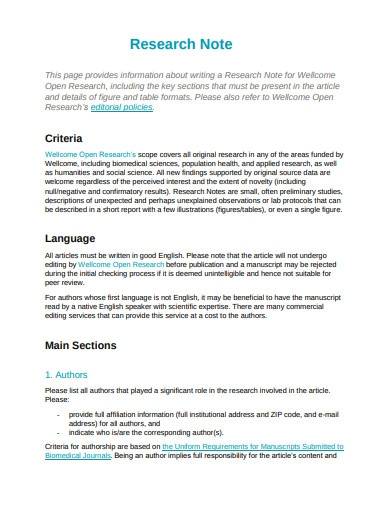Students and researchers need to obtain linguistic skills to use with different types of research concepts. If you’re a student or researcher, whatever the original discipline you studied, you should develop a basic competence in certain subjects in order to be able to write effectively about research methods. Also, having an understanding of the meaning of research terms is useful in your research work. But you also need to write a research note. In this article, we will provide some beneficial tips that you should learn and apply while writing your research note. Plus, we include note samples that you can use. Please continue reading!
FREE 10+ Research Note Samples
1. Research Note Template
2. Research Note Organizer
3. Research Note in Word Template
4. Research Note Outlines Template
5. Self-Serving Research Note
6. Formal Research Note Template
7. Professional Research Note Template
8. Rural Research Note Template
9. Research Notes and Report
10. Sample Research Note Template
11. Sample Research Note
What is a Research Note?
Several businesses, organizations or professionals use a research note which is composed of short preliminary studies, descriptions of unanticipated and possible unidentified observations or lab protocols that can be written in a short report with a few illustrations such as figures/tables, or even a single figure.
How to Write a Research Note
What are the two main objectives that you must fulfill for your research project in several months? What are the things you need for your ethnographic fieldnotes? These are the typical questions that you need to contemplate while taking down notes. Below are important ways you can do while preparing this document:
1. Identify your research goals and objectives
Why do you want to perform your research work in the first place? What kind of information do you need to record in your research journal? Identifying clear research goals and objectives for your research work is very essential in taking down notes.
2. Select your preferred note-taking methods and strategies
Fiona McPherson wrote in her book “Effective Notetaking” that note-taking is primarily a tool to encode information effectively in your memory and your working memory capacity affects your ability to take notes. Some common methods are outlining, mapping, charting, sentence, and the Cornell method.
Moreover, there are a number of strategies that you can select from which includes highlighting, headings, and summaries. Highlighting helps in your concentration and when the text is of relatively low-density. Headings are classified as organizational signals that produce better outlines and better memory for the main points of a text. While summaries are used as guides for your research study.
3. Use abbreviations, acronyms, initialism, or phrases
If you’re recording notes during an interview, a conversation, a speech event, or surveys, we recommend that you use abbreviations, acronyms, initialism or phrases to effectively shorten sentences and quickly jot down important points in normal speech.
An abbreviation is a way to shorten a phrase but with a minimal difference without making a new word or phrase (Example: Ave. for avenue). While an acronym is a way of shortening a phrase by combining the first letter of each word in the phrase (Example: NCT for Neo Culture Technology).
4. Create some sketchnotes or visual notes
If you’re a visual learner, an article suggested that you should do some sketchnotes. Created by designer and author Mike Rohde, this unique method combines traditional handwritten notes with symbols, drawings, charts, and other creative elements. Use visual cues to enhance memory retention. Develop ideas more comprehensively by making connections between points.
FAQ
Research notes are similar to discussion notes to seek in progressing a new idea, theoretical perspective, research program, or methodological approach in organization studies.What is a research note in a journal?
ThoughtCo. explains in their article that note-taking is the practice of writing down or otherwise recording key points of information. It’s a significant part of the research process. Notes taken on class lectures or discussions may serve as study aids, while notes taken during an interview may provide material for an article, book, or essay.How important is note taking in the research process?
The three note-taking styles are outline, visual, or Cornell. Outline and visual notes are quick personally, but need more work after class to make them useful while Cornell notes take the most work directly, but are the most valuable for studying or reviewing.What are the 3 types of note-taking?
An article stated that “academic skills centers and other authorities on effective study skills consider reviewing and editing class notes to be the most important part of note-taking and essential to increasing learning capacity.” It is really fundamental to review your notes within 24 hours to retain what you have learned in your mind.What is the most important part of the note-taking process?
Remember that the main significance of note-taking for your research work is through its effect on how you encode the information in your brain. That’s why the act of note-taking is more essential than the result. You need to be able to paraphrase, organize, and make sense of the information while taking notes. To help you in recording your research notes or ethnographic fieldnotes, you can click and download our templates here!
Related Posts
FREE 9+ Market Research Report Samples in PDF MS Word
FREE 10+ Nursing Case Study Samples & Templates in MS Word ...
FREE 12+ Sample Thank You Letter to Mentor in PDF MS Word
FREE 8+ Sample Soap Note Templates in MS Word PDF
FREE 7+ Sample Thank You Note After Interview in PDF MS Word
FREE 11+ Absence Note Samples in MS Word PDF
FREE 6+ Consultant Budget Samples in PDF MS Word
Outline Template
Sample Interview Consent Form
FREE 11+ One-Page Writing Samples and Templates in PDF
Sample Delegation Letter
FREE 8+ Sample Research Consent Forms in PDF MS Word
FREE 10+ Legal Research Form and Samples in PDF MS Word
FREE 34 Research Papers in PDF
FREE 9+ Quantitative Research Samples & Templates in MS Word ...

